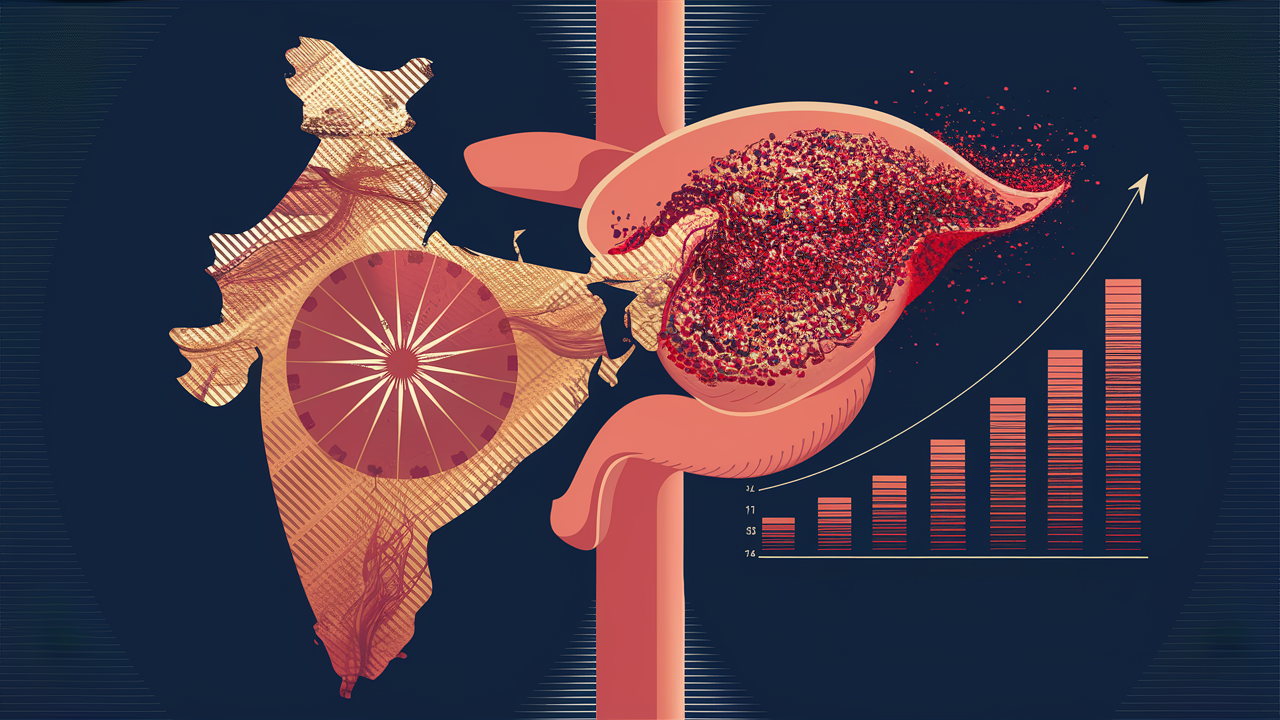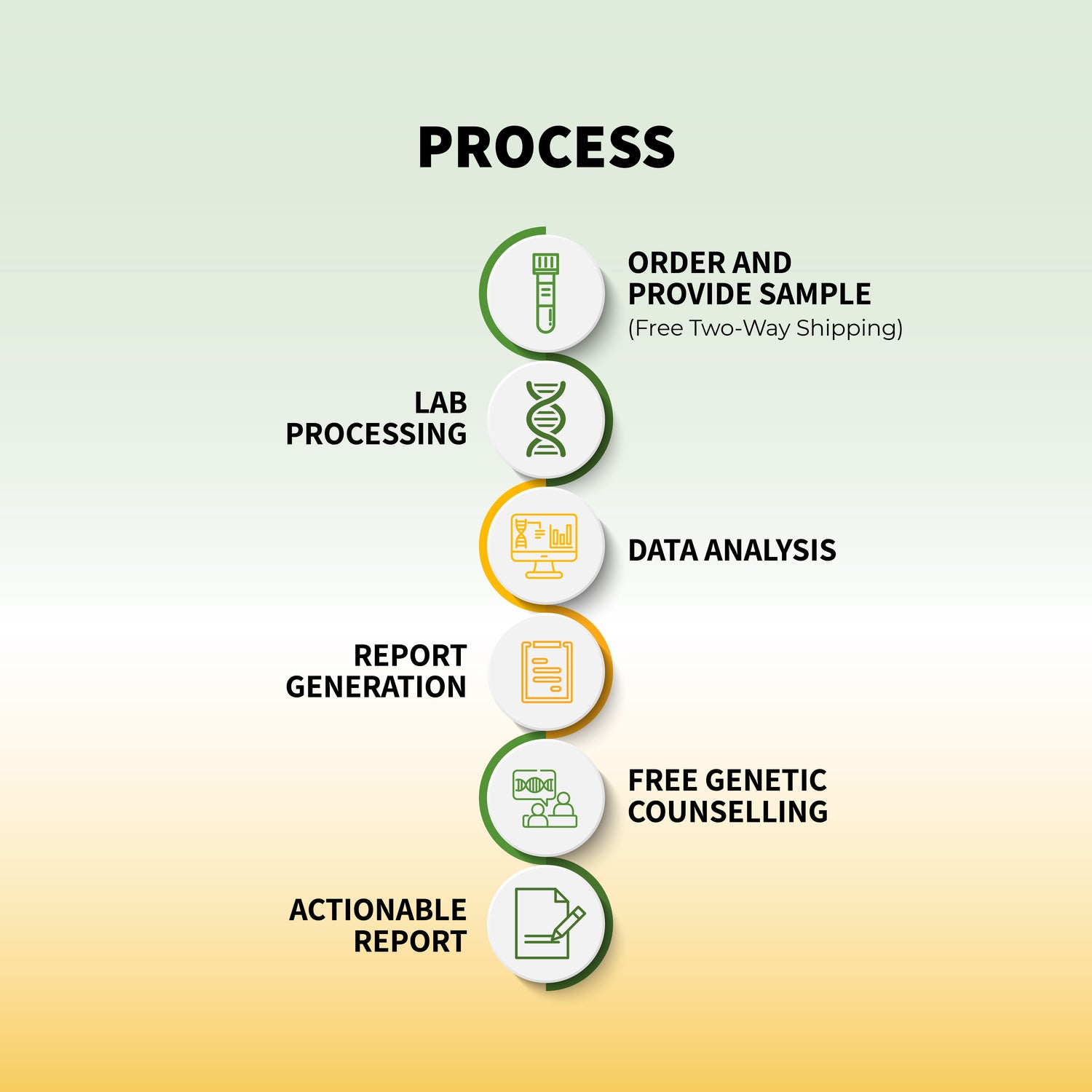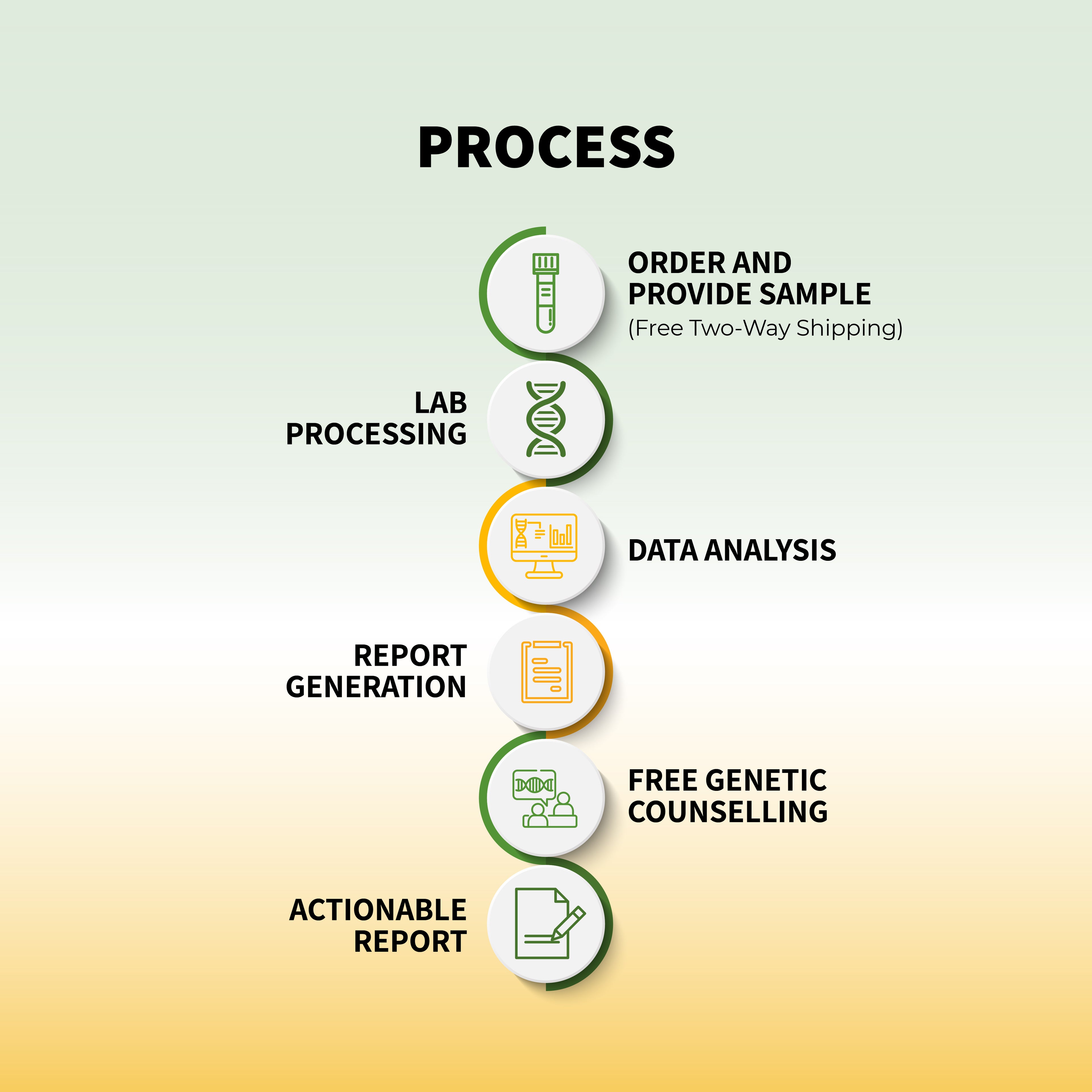Fatty liver disease (FLD), also known as non-alcoholic fatty liver disease (NAFLD), is a growing health concern worldwide, and India is no exception. Often called a "silent epidemic," FLD usually has no early symptoms, yet it can lead to severe liver damage, including cirrhosis and liver failure. In this blog, we'll delve into the prevalence of FLD in India, explore the role of genetics, and discuss how innovative genetic tests like Genomepatri can empower individuals to make proactive lifestyle changes.
FLD in India: A Statistical Overview
- Rising Prevalence: Recent studies indicate that nearly 40% of the adult Indian population may have FLD. This staggering figure underscores the urgency of addressing this silent epidemic.
- Urbanization and Lifestyle: Factors like rapid urbanization, sedentary lifestyles, and unhealthy diets high in processed foods and sugary drinks are key contributors to the rising rates of FLD in India.
- Genetic Predisposition: Research suggests that certain genetic variations can make individuals more susceptible to developing FLD, even if their lifestyle factors seem relatively healthy.
The Role of Genetics in FLD
- PNPLA3 Gene: Variations in the PNPLA3 gene are strongly linked to increased fat accumulation in the liver and a higher risk of FLD progression.
- TM6SF2 Gene: Certain variants of the TM6SF2 gene can also influence liver fat metabolism and disease risk.
- Personalized Risk Assessment: Genetic testing can identify these genetic variations, providing individuals with a clearer picture of their personal risk for FLD.
Genomepatri: Unlocking Your Genetic Blueprint
Genomepatri, a pioneering genetic test, can help you understand your unique genetic predispositions to FLD and other health conditions. By analyzing your DNA, Genomepatri can reveal:
- Your genetic risk factors: Discover whether you carry specific gene variants that increase your susceptibility to FLD.
- Personalized lifestyle recommendations: Receive tailored advice on diet, exercise, and other lifestyle modifications that can help you mitigate your genetic risks.
- Proactive health management: Use your genetic information to take control of your health and make informed decisions about your well-being.
Case Study: Reversing Fatty Liver Disease at 40
Rajesh, a 40-year-old software engineer in Bangalore, was diagnosed with fatty liver disease during a routine checkup. Although he had no symptoms, his liver enzymes were elevated, and an ultrasound revealed excess fat in his liver. Rajesh was concerned about his diagnosis, but he was determined to improve his health. He underwent Genomepatri testing, which revealed he had a genetic predisposition to FLD. Armed with this information, Rajesh worked with a nutritionist and fitness coach to develop a personalized plan.
Rajesh's Lifestyle Changes:
- Diet: Rajesh switched to a Mediterranean-style diet rich in fruits, vegetables, whole grains, and lean protein. He drastically reduced his intake of processed foods, sugary drinks, and fried snacks.
- Exercise: He started a regular exercise routine, including brisk walking, cycling, and strength training, for at least 150 minutes per week.
- Weight Loss: Rajesh lost 10% of his body weight within six months, which significantly improved his liver health.
- Regular Monitoring: He continued to monitor his liver enzymes and had follow-up ultrasounds.
Outcome:
After a year of dedicated lifestyle changes, Rajesh's liver enzymes returned to normal, and the fat in his liver had significantly decreased. He felt more energetic, had improved blood sugar levels, and was no longer at high risk for FLD complications.
A Word of Inspiration:
"The greatest wealth is health." – Virgil
Rajesh's story embodies this ancient wisdom. His journey demonstrates that even with a genetic predisposition, our choices and actions have the power to transform our health and well-being.
Conclusion
Fatty liver disease is a serious public health issue in India, but it's not inevitable. Understanding your genetic risk factors through tests like Genomepatri and making informed lifestyle changes can significantly reduce your risk of developing FLD or slow its progression. As Rajesh's case demonstrates, even with a genetic predisposition, adopting a healthy lifestyle can reverse FLD and improve overall well-being.















